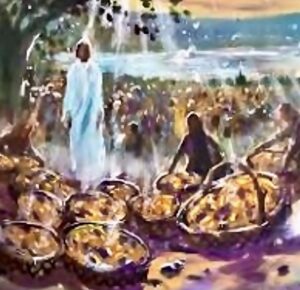Richard Belcher provides a detailed biographical sketch of Adoniram Judson, a significant figure in Christian missionary history. Belcher focuses on Judson’s contributions to missions, his profound faith, and his enduring legacy in spreading Christianity abroad.
The following unedited transcript is provided by Beluga AI.
Judson, I think through the journey books, you understand I have a very practical turn. I want to make things very, very practical. And even before the journey book was written, I read the biographies of great Christians, and I began to pray. Lord, how can I share these biographies with people who won’t read them? And so the Lord gave me this presentation. There are a lot of tremendous biographies. I trust you’ll be challenged to read one. And brother Jerry Marcelino’s Audubon Press has published a book on Adoniram Judson on Christian baptism.
I’ll mention something of how Judson became a Baptist in the presentation. There’s a picture of William Carey’s Church on the front there in Calcutta. I’ve preached in that church a number of times. And then inside there is a picture of a baptismal covering at Cary Baptist church where Adoniram Judson and Luther Rice were baptized. Now it just looks like a floor, but it opens up and the baptistry is there. What a historic place. And so I would recommend this book to you. So without any further word, I do appreciate our sister playing for us.
Let me share with you this life. I’ll tell this world that I’m a Christian. I’m not ashamed. His name to bear. I’ll tell this word that I’m a Christian. I’ll take the gospel anywhere. On the main street of Malden, Massachusetts, there stands a white frame house. On the front lawn is a marker that reads Malden, his birthplace, the ocean, his sepulchre. This simple monument quietly notes the birthplace of Adoniram Judson. But markers only summarize, and at that so poorly, one will never know the full story.
The burden, the heartache, the pain, the suffering, the death, or the victories of America’s first Baptist missionary. From just reading this historical marker, let me share with you more fully the life of Adoniram Judson, a man who believed in the sovereignty of God and walked in submission to His sovereign providence.
I’ll tell this world that I’m a Christian. I’m not ashamed His name to bear. I’ll tell this world that I’m a Christian. I’ll take the gospel anywhere.
This truly amazing man was born to the Reverend Adoniram Judson Sr. and his wife Abigail as they served the First Congregational Church of Malden, Massachusetts, on Saturday, August 9, 1788. He was named Adoniram Judson Junior. He was an unusual young man, active, energetic, self-confident, studious, and he possessed an avid mind for solving puzzles. It’s reported he taught himself how to read at three years of age. His grammar school interests included mathematics, Greek, and Latin. And so amazing was his ability as a scholar that he entered Brown University just six days after his 16th birthday.
The university found himself versed already in Latin, Greek, mathematics, geography, astronomy, logic, oratory, rhetoric, and moral philosophy. But he was allowed to bypass the freshman year of college, and he entered, yes, as a sophomore, just barely 16 years old. His impact on the faculty and the student body was almost beyond belief. But in the passing of his college years, one of his closest friends became Jacob Eames of Belfast, Maine. Jacob was an infidel, and the religious beliefs given him by his parents completely collapsed in favor of unbelief.
Also, he graduated as valedictorian of his class on September 2 of 1807. But the days that followed were days of rebellion, unbelief, and infidelity, to the breaking of his dear parents’ hearts. Then one evening, while traveling through the country, having been to New York seeking a theatrical career, he stopped at an inn to spend the night. He found himself unexpectedly, but certainly within God’s sovereign providence, in a room next to that of a man who was dying.
As he was aware through the night of the man’s hopeless condition, he found himself troubled concerning this matter of death. Certainly, he thought, this man needs to make some kind of preparation for death, and maybe I am lacking also. He actually found that he feared death, but he sought to calm himself by imagining the attitude and the brilliant remarks of his close friend Jacob Eames were he to find himself in such a place. Finally, in the wee hours of the morning, he drifted off to sleep.
The next day, as he paid for his lodging, he asked about the man in the room next to his. “He died last night,” came the shocking reply. “Well, do you know who he was?” asked Adoniram. “Yes,” said the innkeeper as he checked his log. “He was a young man from Brown University named Eames. Jacob Eames.” In God’s sovereign province, Jacob Eames was the man who died and whose death groans he heard through the night that previous evening.
Adoniram was never the same following this news of the death of his infidel friend Jacob, and certainly this event shook him. The months that followed were still days of inner conflict and battle, but God and his sovereignty was working definitely and deeply in his life. Finally, he surrendered to the Lord, and he had peace. For the first time in his life, only one question remained. How shall I order my life that I might best please God?
In the passing of time, this question was answered. Also, as his heart became deeply burdened for missions, he longed to become America’s first foreign missionary. He resolved while in prayer one day to obey the command of the great commission, whatever the cost. Little did he realize then how great the cost would be.
It may not be on the mountain’s height or over that stormy sea; it may not be at the battle’s thrill need of me. But if by that still small voice He calls to paths I do not know, I’ll answer, dear Lord, with my hand in the vine. I’ll go where you want me to go. I’ll go where you want me to go, dear Lord, or mountain or plain or sea. I’ll say what you want me to say, dear Lord; I’ll be what you want me to be.
It wasn’t easy to convince a denomination with no mission board of the need of one, let alone of the need of missionaries to go to the Orient.
No one in America, including the Congregationalists, had ever sent out such a thing as a foreign missionary. But after much prayer and considerable denominational wrangling and travail, God prevailed on behalf of Adoniram and several of his missionary friends. On February 6, 1812, the American Board of Commissioners for Foreign Missions set apart Adoniram Judson and several others as Christian missionaries. On the day before that, Wednesday, February 5, 1812, Adoniram was married to Nancy Hazelton.
Listen to the letter of proposal that he sent to her father: I have now to ask whether you can consent to part with your daughter early next spring, to see her no more in this world. This is a letter of proposal.
Whether you can consent to her departure and her subjection to the hardships and sufferings of a missionary life; whether you can consent to her exposure to the dangers of the ocean, to the fatal influence of the southern climate of India, to every kind of want and distress, to degradation, insult, persecution, and perhaps a violent death.
Can you consent to all of this for the sake of him who left his heavenly home and died for her and for you, for the sake of perishing immortal souls, for the sake of Zion and the glory of God, can you consent to all of this in hope of soon meeting your daughter in the world of glory, with the crown of righteousness brightened with the acclamations of praise which shall redound her savior from the lost, being saved through her means from eternal woe and despair?
John Hazelton’s eyes, one writer says, must have popped out, and he shared this letter with a friend, and the friend said he would tie his own daughter to the bedpost rather than let her go on such a harebrained venture. But John Hazelton left it up to Nancy, his daughter, and they were married, and they went to India. He was 23; she was 22. A few days later, after their marriage, they set sail, ready to serve God in India, ready to suffer grief or pain.
Ready to stand above test, ready to stay at home and send others if he sees. Ready to go, ready to stay ready. My place to fill. Ready for service, lowly or great, ready to do his will. 114 days later, they sighted land once again. But upon landing at Calcutta, problems immediately faced them. Adoniram, in the process of the voyage, had become a Baptist. He had been studying the subject of baptism using his Greek New Testament, but he had become convinced that baptism was by immersion.
He was honest enough to change his affiliation from Congregationalists, from whom he’d had such great difficulty obtaining support, to Baptists, who now had a missionary in India, and they didn’t even know it. But he and Ann were baptized September 6 of 1812. But there were other problems. It appeared that all doors of service were closed to them, and they might have to get back on board ship and return to America. Months of uncertainty passed as they sought and waited for a place of service. Then tragedy struck, as Harriet Newell, one of the accompanying missionaries, died.
She was just 19 years of age. She gave birth to a baby that died in her arms, and then she died also. By this time, her husband was a broken man, and he had to return to the states. Luther Ice, another of the accompanying missionaries, was suffering from liver trouble. It was obvious that he had to return home or he would die as well. Luther Ice came back to America to challenge Baptists concerning their responsibility to missions. But these departures left Adoniram and Nancy entirely alone.
On June 22 of 1814, still seeking a place of service following two years of uncertainty, they left for Burma, confident that God and his sovereignty and faithfulness would guide them and open the door. Great is thy faithfulness, O God, my father, there is no shadow of burning with thee. Thou changest not, thy compassions, they fail not; as thou hast been, thou forever wilt be. Great is thy faithfulness, great is thy faithfulness. Morning by morning new mercies I see; all I have needed thy hand hath provided.
Great is thy faithfulness, Lord unto me. Defeats and victories mixed together in the years that followed as they traveled. And then they lived in Rangoon, Burma. En route, their first baby was born dead. Nancy almost died as well. And at Rangoon, the mission work started so slowly. Years passed, and no one was converted. Adoniram studied 12 hours a day just trying to learn the language. Then, on September 11 of 1815, Roger Williams Judson was born, but a few months later, he died. Also.
By 1817, a tract for the Burmese people had been printed in their language, followed by a catechism. And then the Gospel of Matthew was finished. Late in May of 1817, these all were being distributed with prayer for God’s blessings. A dictionary was begun, but sickness, fever, and near death attacked Adoniram and slowed the work. Cholera broke out in Burma. War rumors threatened. Finally, after six years of waiting and teaching and passing out the scripture, the first convert was recorded. Then death took a new missionary associate from America named Edward Wheelock. Others were converted.
Adoniram labored on the other New Testament books, and he completed the entire New Testament in the Burmese language on July 12, 1823. About ten years of very meticulous, difficult work. Nancy then took sick and had to return to America for her help. And she returned to Burma on December 5, 1823. And together they dedicated their lives to tell the world, even Burma, of Christ’s power to save.
I’ll tell this world that I’m a Christian. I’m not ashamed his name to bear. I’ll tell this world that I’m a Christian. I’ll take the gospel anywhere.
I’ll tell this world how Jesus saved me and how he gave me a life brand new. And I know that if you’ll trust him, that all he gave me, he’ll give to you. I’ll tell this world that he’s my savior, no other one could love me so; my life, my all are his forever, and where he leads me, I will go.
The most difficult hours came during the months of imprisonment.
It all began on June 8 of 1824 and didn’t end until November 4 of 1820, 517 months of the most indescribable pain and agony to his whole being. He was first put into stocks and cast into a windowless prison, where he was blinded by the darkness, overcome with the heat, and gagged from the indescribable stench. At night, the prisoners feet were raised into the air so only the head and shoulders could touch the ground. The ground was covered with straw, but was also covered with filth and swarming with vermin.
This process of raising the legs, ground the hair and neck in the filth, numb the feet and legs, and rubbed the ankles. Raw food was scarce. Death was a definite possibility. Before long, Adoniram was worn and physically broken almost beyond recognition. The reason for his imprisonment was war with England and the Burman conviction that all foreigners surely must be spies. On January 26, 1825, with Adoniram still in prison, Nancy gave birth to Little Maria, Maria Elizabeth Butterworth Judson. After eleven months in prison, Adoniram was beyond recognition.
He was a walking skeleton in filthy clothes with an unkept body and dirty matted hair. And understandably, he was very sick. Word came the prisoners were to be moved. They had to make a journey, walking in the hot, blazing sun without any shoes. As the caravan of prisoners moved from the prison of filth, blisters quickly formed on Adoniram’s feet. These soon burst and left him walking on raw flesh. His mind must have wondered, too, if his decision to be a missionary had been worth the cost. What had his missionary venture brought? Death.
Death to Harriet Newell and her little baby, death. Two of his children, and now surely death to himself. Probably Nancy, to say nothing of Edward Wheelock as well. What did he have to show for his days as a missionary? Just a few converts and a New Testament in the Burmese language that by now had probably been very carefully confiscated and destroyed. What hope did he have? Had he been a fool, as many said, to become a missionary when he could have stayed in the United States and been a great pastor or a great statesman?
All present evidence in human logic seemed to point to that conclusion. I traveled down a lonely road and no one seemed to care. The burden on my weary back had bowed me to despair.
I oft complained to Jesus how folks were treating me, and then I heard Him say so tenderly, “My feet were also weary upon that Calvary road. My cross became so heavy that I fell beneath my load. Be faithful, weary pilgrim, the morning I can see; just lift your cross and follow close to me.”
I work so hard for Jesus, I often boast and say, “I’ve sacrificed a lot of things just to walk your narrow way. I gave up fame and fortune; I’m worth a lot to Thee.” And then I heard Him gently speak to me, “I left my throne of glory and counted it but lost. My hands were nailed in anguish upon that cruel cross. But now we’ll make the journey with your hand safe in mine; just lift your cross and follow close to me.”
O Jesus, if I die upon some foreign field one day, ‘twould be no more than love demands, no less could I repay. No greater love has mortal man than for his friend to die.
These are the words he gently spoke to me: “If just one cup of water I place within your hands, then just one cup of water is all that I demand. But if by death to living they can thy glory see, I’ll take my cross and follow close to thee.” Four miles into the grueling death march, one man died. They had four miles to go. Adoniram knew he could never make it. To be honest, death would be as welcome as it seemed certain. But unexpectedly, they were allowed to stop and spend the night.
A certain release from death, at least temporarily. By morning, he was no better. In fact, he was worse. He couldn’t even walk. Now death did seem inevitable once again. But again in God’s providence, unexpectedly, a chart was employed for the prisoners to write in. When the destination was finally reached, the rumor was they were to be burned. But it proved to be false. They were allowed to live. But how did they live? Well, again their feet were in stocks, and their feet were raised, and the mosquitoes swarmed on the raw soles.
There were a few things to be thankful for. Nancy and little Maria had been able to follow him, and he could see them daily. But in the passing of time, Nancy was very sick and little Maria was starving to death. He found himself more depressed than ever before. He recited often the words of this poem.
No bliss I seek but to fulfill, in life, in death, Thy lovely will. No comfort in my woes I want, except what Thou art pleased to grant. Our days are numbered; let us spare our anxious hearts and needless care. ‘Tis Thine to number out our days, and ours to give them to Thy praise.
If we could see beyond today as God can see, if all those clouds should roll away, our shadows flee, our present griefs we would not fret. Each sorrow we would soon forget, for many joys are waiting yet for you and me. If we could see beyond today as God do know, why dearest treasures pass away, and tears must flow. Why dreary days will soon grow bright, someday life’s wrongs will be made right. Yes, God will make all right someday; trust and obey.
If we could see, if we could know, we often say, but God in love availed a throw across our way. We cannot see what lies before, and so we cling to Him of Amor. He leads us till our life is o’er; stand, obey.
Adoniram lived, and little Maria lived by God’s grace and strength, and finally, he was released on November 4, 1825, after those 17 months of what we’ve described.
In the months that followed, Adoniram worked as a translator to help secure a peaceful settlement of the war between Burma and England. But progress was so slow; neither side trusted the other. And to do this work, he had to be away from home. On November 24, 1825, he received a letter that he felt certainly bore the sad news of little Maria’s death. Quickly he opened the message, and he, my dear sir, to one who suffered so much and with exemplary fortitude, there needs but little preface to tell the tale of this distress.
It would be cruel to torture you with doubt and surprise. And so, to sum up the unhappy tidings in a few words, Misses Judson is no more. You can understand how despair overwhelmed him. He began to weep with open and engulfing sobs. Nancy, his beloved wife, was dead, being only 37 years of age, dead because he had brought her here to Burma. And I would challenge you sometime to read the life of Nancy Judson. She was not just some tagalong with her husband. She was a deep, godly, spiritual girl.
Could he ever go on in light of this crushing tragedy? If only he could have been with her in the hour of her death. His mind must have turned to the hour that he would leave this world, and together they would see Christ. Oftentimes our day seems long, our trials hard to bear, we’re tempted to complain, to murmur and dispute, but Christ will soon appear to catch his bride away, all tears forever over in God’s eternal day. It will be worth it all when we see Jesus; life’s trials will seem so small.
When we see Christ, what glimpse of his dear face, O sorrow, will erase so bravely run your race till we see Christ. Adoniram again carried on by God’s infinite grace. But again sorrow came when little Maria died on April 24, 1827. She had lived only two years and three months. In July of the same year, 1827, he received word his father had died the previous November. He hadn’t seen his father in 14 years. It took Adoniram almost three years to climb from the depths of the sorrow of Nancy’s death.
But he carried on his work with faith in his sovereign God. In 1831, he wrote to another missionary, Sarah Boardman, whose husband George had died also. He said to Sarah, in the hour of her sorrow, “I can assure you that months and months of heart-rending anguish lie before you, whether you will it or not. But take the bitter cup of sorrow with both hands and sit down to your past. You will soon learn a secret, there is sweetness even at the bottom of the cup of sorrow.” About three years later, he finished the Burmese Bible.
He was 46 years old by now. A few weeks later, he received a letter from Sarah Boardman, rejoicing over the completion of the work, the entire Bible, and the language of the people. The letter was dated February 17, 1834. On April 10 of the same year, Adoniram Judson and Sarah Boardman were married. A new happy home was set up. On October 31, 1835, Sarah gave birth to Abigail and Judson. Joy filled the home, and Adoniram worked on a revision of his Old Testament. On April 7, 1837, Adoniram Brown Judson was born.
On July 15 of 1838, Elnathan Judson entered the world. On December 31 of 1839, Little Henry Judson came. On March 8 of 1841, another child, Luther, was stillborn, and Sarah and the other children took down desperately ill. A sea voyage was absolutely necessary if they hoped to recover. Little Henry died during the trip on July 30 of 1841, but the others did recover a year later. Sarah gave birth to Henry Hall Judson on July 8 of 1842. On December 18 of 1843, Charles Judson was born.
The family was complete when Edward Judson Judson arrived on December 27 of 1844. In case you lost track, Adoniram Judson and Sarah Boardman Judson brought forth eight children in a place such as Burma. In 1845, Sarah’s hell became much worse, and it was felt a trip to America might help her, as such a trip had helped Nancy. At one point in her life, Sarah, Adoniram, and part of the family set sail during the voyage.
At one point, Sarah appeared much better, but she soon came down again, and somewhere between Burma and these United States, Sarah Boardman Judson died also. It was a long, sad voyage to America under such conditions. Then, while in America, they received word from Burma that little Charlie had died at the age of a year and a half. Adoniram must have wondered how much more he could bear as he looked to his sovereign God, and as he turned now to his unfinished dictionary, he giveth more grace.
When our burdens grow greater, he sendeth more strength as our labors increase. To added affliction, he addeth of his mercy; to multiplied trials, his multiplied peace. His love has no limit, his grace has no measure. His power has no boundaries known unto men. For out of his infinite riches in Jesus, he giveth and giveth and giveth again. When we have exhausted our source of endurance, when our strength has failed ere the day is done, when we reach the end of our hoarded resources, our Father’s forgiving has only begun.
His love has no limit, his grace has no measure. His power has no boundaries known unto men. Pour out of his infinite riches in Jesus. He giveth and he giveth, and he giveth again.
But while in America those two years, God’s grace did give to Adoniram. Unexpectedly, he met Emily Schuberth. She was a writer. Adoniram was 57 years old now. She was much younger and had never been married. But she captivated him, so they were married on June 1, 1846. On June 11, the same year, they left for Burma.
When back in Burma, Adoniram gave himself to what he knew would be his last work, the completion of his dictionary. All who followed him to that mission field would need that work and would build on it. On December 24, 1847, Emily Francis was born. She added an unusual blessing to the happy family. And finally, on January 24, 1849, the English Burmese part of the dictionary was finished, 600 pages in size. Thus, in 37 years as a missionary, he had translated the entire Bible into the Burmese language.
And he had finished the most important half of a dictionary. What a time of praise. As he now set to work on the other half. Hallelujah, hallelujah, hallelujah, hallelujah, hallelujah, hallelujah, hallelujah, hallelujah. I will say serve him for he’s my savior, yes, I’ll serve him and he’s my savior, yes, I’ll serve him for he’s my savior. Hallelujah, I will serve him.
In late September of 1849, Adoniram contracted a very severe cold. The days that followed were days of deep pain and suffering. The doctor recommended a sea voyage.
Emily was far advanced with her second child, and there was no possibility of her going with him. On Wednesday, April 3 of 1850, he was finally carried aboard a ship with an accompanying fellow missionary and a servant. When Emily told him goodbye, he could scarcely whisper, and finally his lips moved, but he made no sound. Several weeks later, at sea, he rallied and he felt much better. But on a Tuesday afternoon, he became deathly ill. Once again, he wished he could die now, but few there are who die so hard.
His agony was so appalling that others could hardly watch. By Friday, it was clear his end was very near. In the middle of the afternoon, he said, “It is done. I am going. Take care of poor mistress.” Then Adoniram Judson fell asleep as he gently stopped breathing. It was 4:14 Friday afternoon, April 12 of 1850, that Adoniram Judson, in accordance with God’s sovereign providence, reached his final destination, heaven’s golden shores. At last, his frail body was buried at sea. Each time I present this live, there’s a question that rings through the congregation.
Why did he have to suffer so much? The cost of his labor was so great. Why did he have to suffer so much? He had surrendered his heart to be a missionary. Why is God’s work so hard sometimes? But that was not what concerned Judson. What concerned Judson was to be faithful to his gracious sovereign God. He was a man who took Christ at his word.
When Jesus said to go into all the world and preach the gospel to every creature, His sovereign Lord had told him to leave father, mother, brother, sister, son, and daughter to be Christ’s disciple.
15 And He said to them, “Go into all the world and preach the gospel to every creature. (Mark 16:15, NKJV)
And he did. He took Christ, his sovereign Lord, literally when He said he that would lose his Christ, his life, for Christ would find it. He was that grain of wheat that fell into the ground and died. But he sprang up again to bear much fruit.
Why did he have to suffer? Why did Job have to suffer? The question was never answered.
But when you live for the glory of God, that question really doesn’t matter. The heart longs to be faithful to God in whatever context. Remember that God puts us willing to suffer whatever would be God’s will and purpose, for his glory and for our good. Yes, Judson was that man who faced the unbeatable foe, and he won the battle. Because by the time he died, not just through his ministry, but through others, following from even his inspiration, 70,000 Burmese people had professed faith in Christ. Churches had been planted.
Yes, he was that one who ran where the brave dared not go. Because he was following his sovereign lord. He bore the unbearable sorrow in commitment to his sovereign savior. By God’s grace, he overextended himself time and time again. He pressed constantly forward when his whole being was weary and filled with despair. The souls of men in the glory of God were his quest. No matter how hopeless, no matter how far he was willing to give, when there was no more to give, he was willing to die. Why? All for the glory of God.
All within God’s sovereign providence, for his life. What about you and I? May I ask you, what attitude was yours as you came to this conference? Perhaps you’d been wallowing in a pity party, feeling sorry for yourself for some circumstances or events that had. In the light of Job’s life, we’ve suffered nothing. In light of Judson’s life, who here could even hold a candle to Adoniram Judson?
May I challenge you to leave this place today, to go forth, to tell the world that you’re a Christian, to be faithful to your sovereign God, whatever the difficulties, whatever the trials, whatever the hardships, whatever the tears, that you will be faithful to that context into which your sovereign God has placed you. And I guarantee you, as you follow him you will have an impact. For his glory. May you take that challenge seriously. That’s in our song.
For the glory of God, I’ll tell this world that I’m a Christian. I’m not ashamed his name to bear. I’ll tell this world that I’m a Christian. I’ll spread the gospel everywhere. And when he comes, my life is over, I know for certain there’s more to be. Eyes have never seen those wonders that he’s preparing for you and me. Go tell this world that you’re a Christian, be not ashamed his name to bear. Go tell this world that you’re our Christian, and take the gospel everywhere.
“The Most Practical and Engaging Book on Christian Living Apart from the Bible”
 “If you’re going to read just one book on Christian living and how the gospel can be applied in your life, let this be your book.”—Elisa dos Santos, Amazon reviewer.
“If you’re going to read just one book on Christian living and how the gospel can be applied in your life, let this be your book.”—Elisa dos Santos, Amazon reviewer.
In this book, seasoned church planter Jeff Vanderstelt argues that you need to become “gospel fluent”—to think about your life through the truth of the gospel and rehearse it to yourself and others.
We’re delighted to offer the Gospel Fluency: Speaking the Truths of Jesus into the Everyday Stuff of Life ebook (Crossway) to you for FREE today. Click this link to get instant access to a resource that will help you apply the gospel more confidently to every area of your life.





















